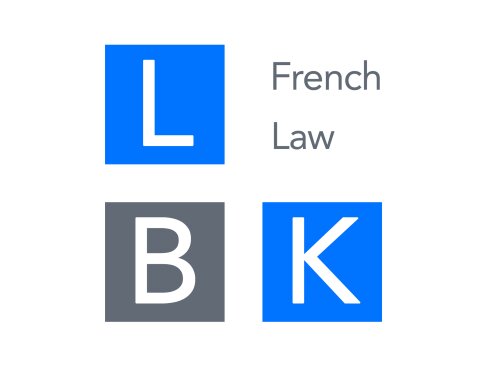Best Energy Regulatory Law Lawyers in Paris
Share your needs with us, get contacted by law firms.
Free. Takes 2 min.
List of the best lawyers in Paris, France
About Energy Regulatory Law in Paris, France
Energy Regulatory Law in Paris, France governs the production, distribution, consumption, and commercialization of energy within the city and throughout the country. This area of law is closely linked to France's national objectives of energy transition, sustainability, and compliance with European Union directives. It covers various energy sectors, including electricity, gas, renewables, and petroleum, and sets the legal framework for both public and private stakeholders operating in the energy market. Regulatory bodies oversee the adherence to these laws and ensure that energy production and supply meet established safety, environmental, and competition standards.
Why You May Need a Lawyer
Individuals and organizations often require the assistance of an Energy Regulatory Law lawyer in situations such as entering into supply agreements, launching renewable energy projects, resolving disputes over tariffs, obtaining regulatory approvals, or ensuring compliance with French and EU energy regulations. Other scenarios may include dealing with public procurement contracts, responding to regulatory investigations, facing penalties for environmental breaches, or navigating mergers and acquisitions in the energy sector. Legal guidance is crucial to minimize risk, safeguard rights, and optimize business opportunities in this highly regulated environment.
Local Laws Overview
Energy Regulatory Law in Paris, and more broadly in France, operates within a robust legal framework shaped by national legislation such as the Energy Code (Code de l’énergie) and its accompanying regulations. Paris, as the nation's capital and a major urban center, is subject to both national and European Union rules. Key aspects include authorization procedures for energy generation and supply, obligations for environmental impact assessments, controls on pricing and network access, support frameworks for renewable energy development, consumer protection measures, and compliance rules for safety and emissions. The regulatory authority, Commission de Régulation de l’Énergie (CRE), plays a vital role in ensuring that market activities align with these standards.
Frequently Asked Questions
What is the main regulatory authority for energy in Paris, France?
The primary regulatory authority is the Commission de Régulation de l’Énergie (CRE), which oversees electricity, gas, and the integration of renewables into the energy system.
Do I need permits to operate an energy business in Paris?
Yes, most activities such as energy production, distribution, and supply require appropriate authorizations or permits as set forth in the French Energy Code.
What laws govern renewable energy projects in Paris?
Renewable energy projects are governed by the Energy Code, EU directives, and additional sector-specific regulations promoting solar, wind, and other sustainable energy sources.
Are energy tariffs regulated in Paris?
Yes, energy tariffs for electricity and gas are subject to regulatory oversight and may be approved, set, or monitored by the CRE.
How are environmental regulations enforced for energy projects?
Environmental regulations are enforced by multiple bodies, with strict requirements for impact assessments and compliance with emission standards for new and existing projects.
Can foreign companies participate in the Paris energy sector?
Foreign companies can participate, but they must comply with French laws and obtain the same approvals and permits as domestic companies.
What consumer protections exist in energy law?
French energy law includes measures to ensure fair pricing, quality of supply, dispute resolution mechanisms, and transparency for consumers.
How does EU law affect Paris energy regulations?
French energy law must align with EU directives and regulations, particularly those concerning market competition, renewables, and emissions reduction goals.
What should I do if I receive a penalty from a regulatory authority?
If you receive a penalty, consult a lawyer promptly as you may be able to appeal the decision or negotiate terms depending on the circumstances.
How do I resolve a dispute over an energy contract?
Disputes can often be resolved through negotiation, mediation, or, if necessary, through litigation in French courts or administrative bodies.
Additional Resources
If you are seeking more information about Energy Regulatory Law in Paris, consider reaching out to the following resources and organizations:
- Commission de Régulation de l’Énergie (CRE) - Regulatory authority for energy matters - Ministry of the Ecological Transition (Ministère de la Transition Écologique) - Responsible for energy policy - French Energy Code (Code de l’énergie) - Primary body of law for the sector - National Agency for Energy Security (Agence de la sécurité du secteur énergétique) - European Commission Directorate-General for Energy - EU rules and guidance - Local legal aid centers (Maisons de Justice et du Droit) - For initial advice and guidance
Next Steps
If you believe you need legal assistance regarding Energy Regulatory Law in Paris, begin by identifying the nature of your issue or question. Gather any relevant documents and information related to your case. Seek out a lawyer who specializes in energy regulatory law and request an initial consultation. Many lawyers offer a first meeting to assess your needs and discuss potential strategies. For more straightforward matters, you may contact governmental bodies or local legal aid centers for guidance. Always act promptly, especially if you are facing deadlines or regulatory action, to ensure your rights and interests are fully protected.
Lawzana helps you find the best lawyers and law firms in Paris through a curated and pre-screened list of qualified legal professionals. Our platform offers rankings and detailed profiles of attorneys and law firms, allowing you to compare based on practice areas, including Energy Regulatory Law, experience, and client feedback.
Each profile includes a description of the firm's areas of practice, client reviews, team members and partners, year of establishment, spoken languages, office locations, contact information, social media presence, and any published articles or resources. Most firms on our platform speak English and are experienced in both local and international legal matters.
Get a quote from top-rated law firms in Paris, France — quickly, securely, and without unnecessary hassle.
Disclaimer:
The information provided on this page is for general informational purposes only and does not constitute legal advice. While we strive to ensure the accuracy and relevance of the content, legal information may change over time, and interpretations of the law can vary. You should always consult with a qualified legal professional for advice specific to your situation.
We disclaim all liability for actions taken or not taken based on the content of this page. If you believe any information is incorrect or outdated, please contact us, and we will review and update it where appropriate.















